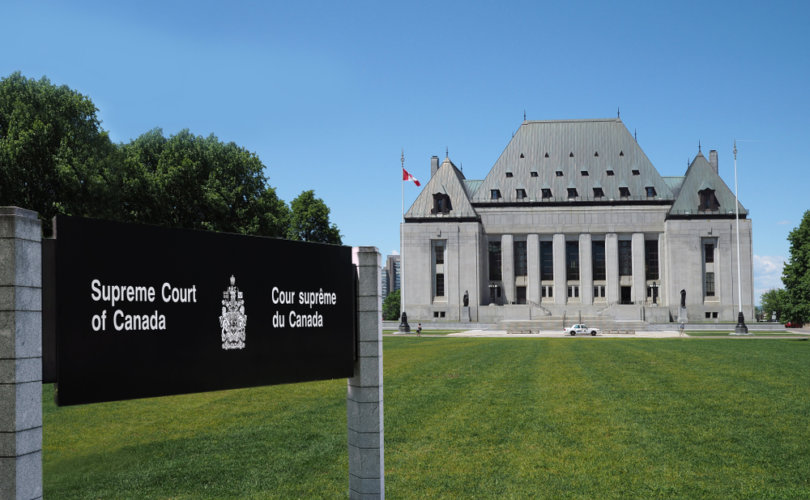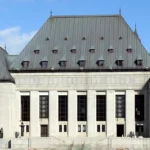Blog Post
Canada’s Supreme Court is a tool of the Left and they want to keep it that way
By Jonathon Van Maren
Canadian commentary on the United States is almost always an exercise in insufferable back-patting, and nowhere is that more true than when columnists opine on the differences between our top courts.
In America, Canadian pundits note smugly, the Supreme Court is partisan and political, unlike in Canada, where we are so well-governed that we don’t even know who our justices are. The latest example of this cringe is from the National Observer which published a column with this pretentious headline: “You probably don’t know who’s on our Supreme Court. Let’s keep it that way.”
The Observer, of course, pinpointed the overturn of Roe v. Wade as a particularly egregious example of the court’s partisanship (Roe v. Wade itself and the subsequent decision to uphold it, of course, were not political). The columnist in question then managed to make a string of mistakes, including repeating the popular falsehood that justices Brett Kavanaugh and Neil Gorsuch had promised not to overturn Roe (they simply affirmed it as a longstanding precedent, which it was and is no longer.) Canada’s court, on the other hand, is a model of stability because Canadians don’t seem to care about it much.
But the only reason that Canadian liberals are so pleased by this state of affairs is because Canada’s Supreme Court is willing to throw out its own precedents in its relentless pursuit of maximal liberalism. It is Canada’s Supreme Court that consistently strikes blows against religious freedom; it is Canada’s Supreme Court that created the euthanasia regime now viewed the world over as a cautionary tale (“if we’re not careful, we’ll end up like Canada.”)
READ THE REST OF THIS COLUMN HERE









All that is true. But it’s a consequence of the Canadian Charter of Rights and Freedoms explicitly permitting judicial activism and subjecting all rights to “reasonable limitations” (thus this “charter of rights” is not worth the paper it’s written on). On the other hand, there is a “notwithstanding clause” that allows federal and provincial legislatures to override a Supreme Court decision for up to five years at a time. If the Canadian Charter was in effect in Texas in 1973, a solidly pro-life government would’ve easily invoked the clause and continued banning abortions. The Harper government could’ve done the same with euthanasia, but didn’t want to (or was too afraid of popular opinion to do so).
The fundamental rule is that when there’s a will, there’s a way (see: Dobbs v. Jackson Women’s Health Organization). Henry Morgentaler got away with doing illegal abortions for so long because juries in post-Quiet Revolution Quebec nullified the law, just like they did in the Jim Crow South when Klansmen were accused of lynching black men. Thus neither the corrupt Bourassa government (full of cabinet ministers that paid Morgentaler to abort their mistresses’ babies) nor the separatist Lévesque government were able to prosecute him. He later expanded to Ontario, the jury nullified again, and he challenged the law before the Supreme Court. Parliament could’ve passed a new law on abortion (it still can), but made only a half-baked effort that neither side liked. Of course, one could easily argue that the Supreme Court would strike down any meaningful ban on abortion, but the Canadian public has long been too far gone to even attempt it.